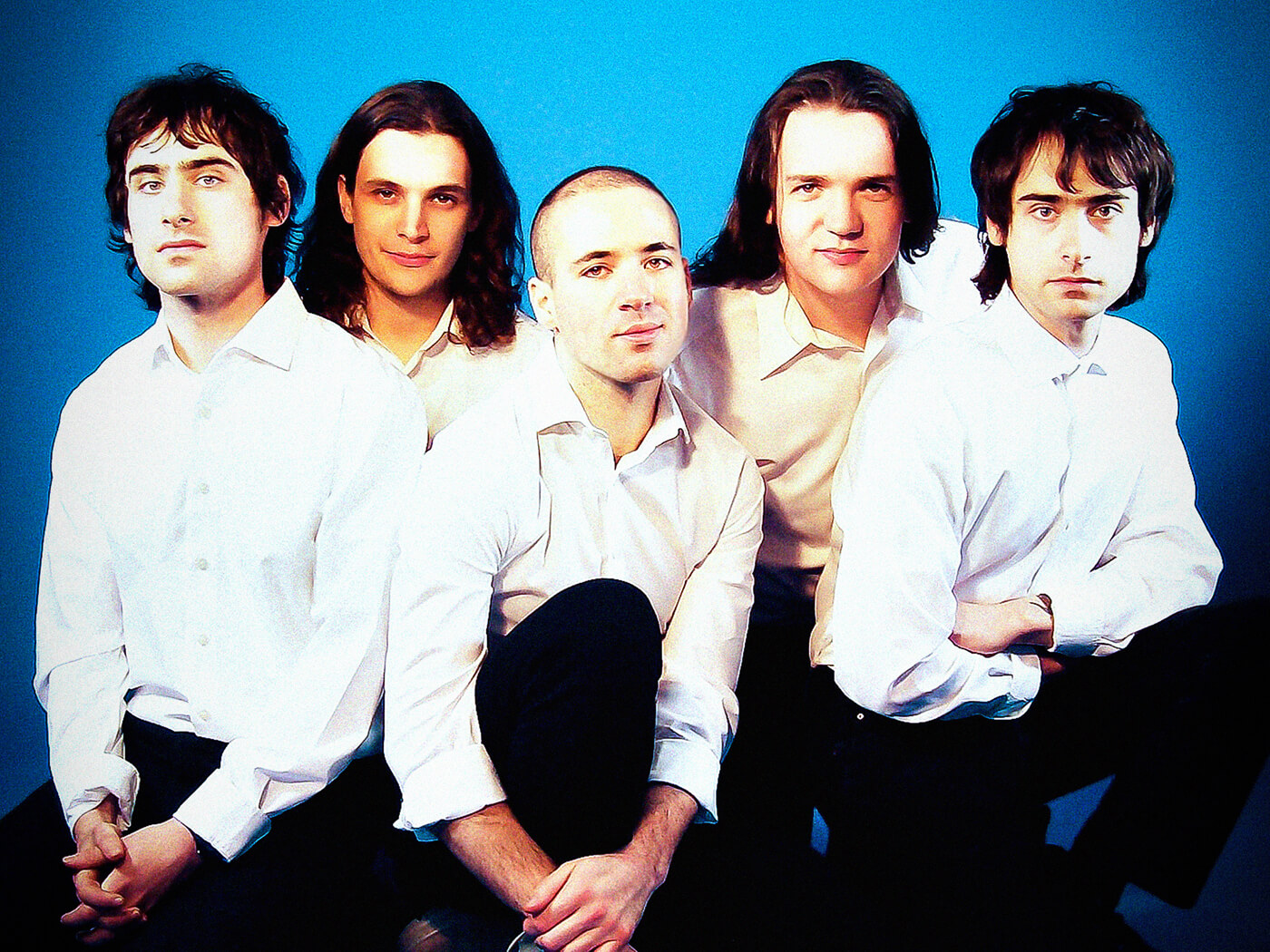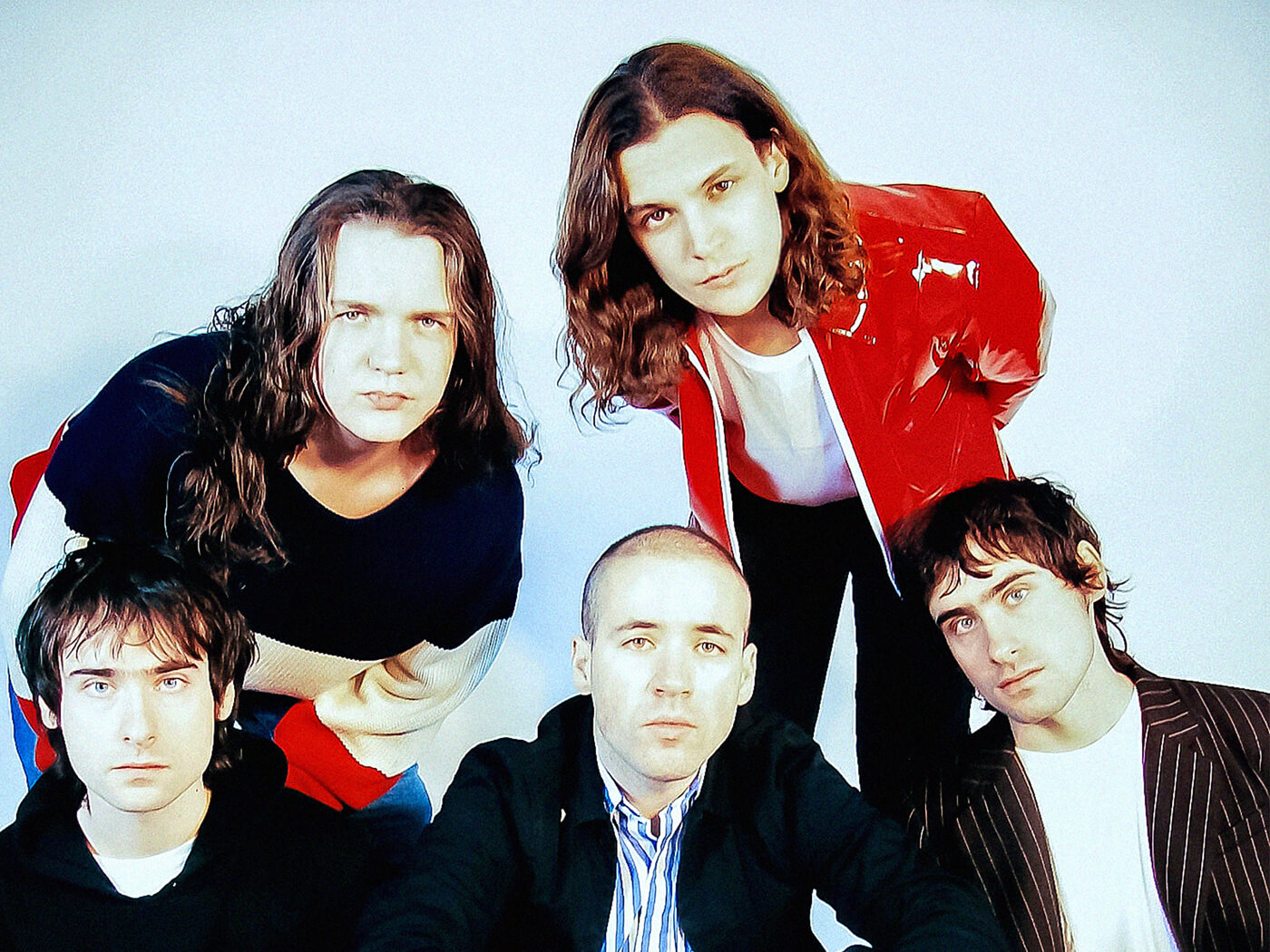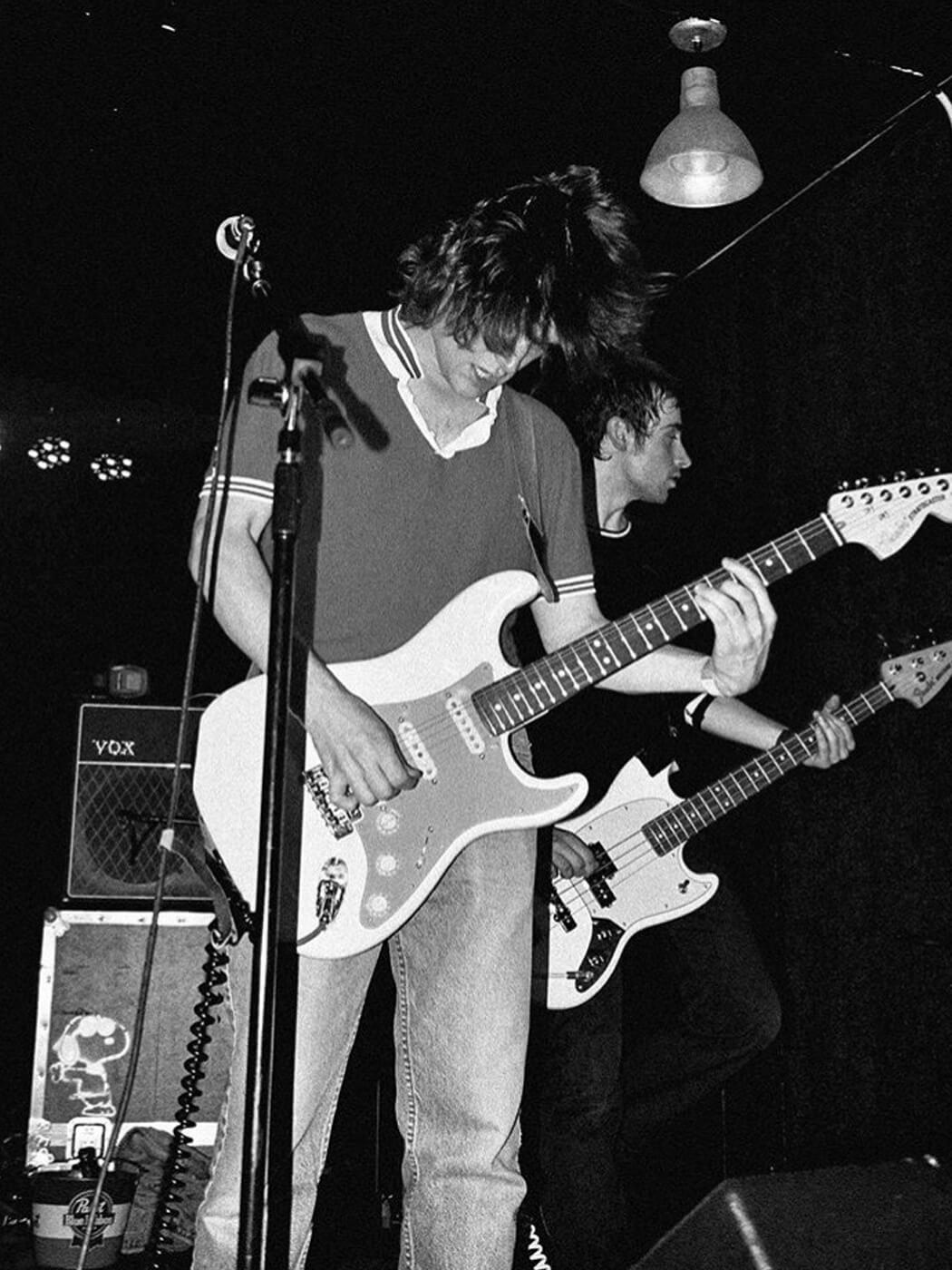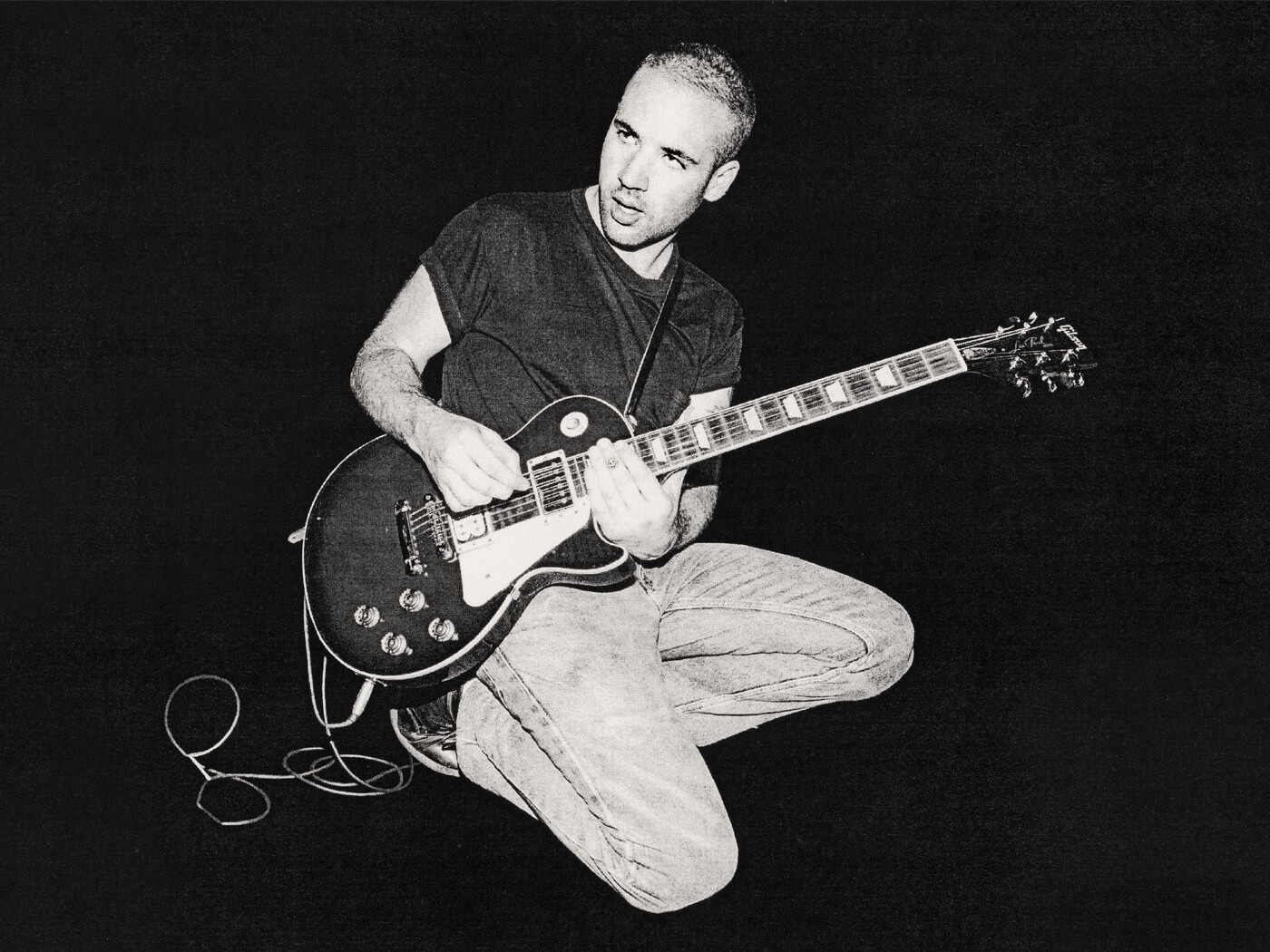White Reaper capture lightning in a bottle on their new album, You Deserve Love
Guitarists Tony Esposito and Hunter Thompson talk dual guitar harmonies, the magic of the first take, and all the gear that went into their third record.

Image: Grace Lillash
Self-proclaimed “World’s Best American Band” White Reaper are back today with a new album, You Deserve Love. Featuring their signature duelling-guitar leads, bright keyboards and thumping basslines, the new record – like most of their previous releases – is fun as hell.
Channelling Thin Lizzy, Def Leppard, and the Beach Boys, White Reaper’s new offering wouldn’t have been out of place on the charts 40 years ago. You Deserve Love is the band’s third studio album and with it, the Louisville, Kentucky rockers have transcended their early garage-band sound, progressing into rich, textural arena rock. The LP is also a milestone in other ways: it’s the band’s debut on major label Elektra Records, and the first White Reaper album recorded with guitarist Hunter Thompson, the band’s newest member.
To get a better idea of how White Reaper made You Deserve Love, we sat down with Thompson as well as guitarist and lead songwriter Tony Esposito to talk influences, creative processes, and as always, gear.
How do you approach guitar duties in the band, especially when it comes to creating twin harmonies? Do you both alternate on lead?
Hunter Thompson: Yeah, we both do a lot of lead work. On the other records, Tony did it all by himself and so on this one he was pretty open to giving me free rein: “Take this solo, take that solo.” But in terms of harmonies, Tony wrote a lot of the main ideas of songs. Then we’d fill in the gaps and choose which harmonies we wanted, and finessed and polished them a bit. We both have really focused approaches to writing parts. There’s not a lot of messing around or freestyling. We know what we want it to sound like: a very direct and concise a part as we can make it, which lends itself to harmonies because they are so premeditated.
Tony Esposito: The way we delegated parts was a lot more intentional on this record. I let Hunter tackle a lot of the lead stuff. I just ‘cut him loose’ on some riffs (laughs) so I could focus on singing. We had two records before Hunter joined, so a lot of the stuff in the live set is kind of reverse engineering of who’s going to take what part, and adding some harmonies into the old stuff.

You Deserve Love has a live feel to it. How did the recording unfold in the studio?
TE: We recorded pretty much everything live, obviously, except for the vocals. A lot of my guitar takes were done playing with the band, but we dubbed some harmonies. We did different things, like I would play Hunter’s harmony part and he would play mine, and then we would even play each other’s guitars – just so that we had tonnes of tracks for the harmony sections. My tone really stayed the same most of the time. I did all of the songs through my amp, except for one, and it was really Hunter who was doing the flourish-y kind of stuff.
HT: In the end it’s a rock album and we’re a five-piece rock band, so we did a lot of the tracking really raw and live. There aren’t a lot of overdubs. We did a lot of takes of the songs, but we pretty much used everything that was in a single take; drums aren’t cut together, guitar parts are mostly all live, bass all live.
We got in the studio and [producer] Jay [Joyce] was like, “I just want to keep this as raw as possible.” It really came out with a lot of energy because he knew what he was doing – getting the magic of the first couple takes. There’s something about the album that feels loose and lived in. It’s not super sterile and boring, and we played as tight as possible. It was a good lesson in not wringing the magic out of a take.
All the songs are pretty diverse, sound-wise. Was that a goal for the band and how much input did your producer Jay Joyce have?
TE: It was a hundred percent a goal of ours to make sure that each song had its own unique feel. On the first full-length record we put out, White Reaper Does It Again, all of the songs have a similar vibe. I think that on the second record, we tried to put a little more emphasis on variety and that makes for a better experience for people who listen to the record. They get to hear different kinds of things rather than the same styles of a song 10 or 12 times. For the producer, Jay, and the engineer, Jason [Hall], it was their mission to make each song feel like a different scene.
The song Real Long Time is very melodic and has a memorable riff.
HT: That was one of the first demos Tony had for the new record. That guitar intro is a pretty simple part ultimately, but the harmonies make it, and the tension against it makes it a lot more interesting. But Tony was like, “I don’t know if I want to use this.” He was on the fence about it and I just remember being like, “No this is really good, we should use it for sure.” And I think it’s ended up being one of our favourite songs.
Headwind has a Beach Boys vibe to it. How did that song evolve?
TE: A couple years ago I had a brief stint working as a server and I hated it. But a cool thing I found about having a job like that is when you get into a rhythm, you can write songs, just getting into that headspace. I came up with the riff for Headwind in between bussing tables and taking drink orders. I imagined it as this real jangly, old 60s Beach Boys or Nuggets kind of vibe, and I’m glad that it turned out that way.

What guitars did you guys play on You Deserve Love?
HT: I played a tonne of guitars on the album. I used my 2018 Fender Professional Telecaster a bunch, and this really cool Gretsch; I messed with that a little bit. I played some weird Danelectro baritone guitars. A Strat at some point, but my sunburst 2016 Les Paul was the main guitar I played for a lot of it. I was grabbing things off the shelf that the producer had, just because I wanted to try them out. If it didn’t work, I’d go to something else, but I was maximising what they had at the studio.
TE: I played a Gibson ’67 Flying V Reissue for most of the tracks. The neck is awesome. It’s really loud for a solidbody guitar, which is cool. It resonated super well and sounded really big and fat and it’s real pretty to look at. Then on some songs, like Headwind, I used this black Gretsch semi-hollow; the pick-ups are super cool, they’re G-Supers. And then also a traditional Les Paul pops up here and there.
I actually created a lot of the demos with my sunburst 2016 Les Paul. We ended up using one of the guitar tracks from the demo, on the song 1F – It has a weird, super compressed, flange-y tone, but in the studio we just couldn’t figure out how to get it to sound like it did on the demo. It was a weird phenomenon on the demo; it had the perfect tone for the riff, so we ended up using that demo track for the recorded version.
Tony, were you always a Les Paul fan?
TE: Growing up tonnes of my heroes, specifically Ace Frehley, were playing Les Pauls. It was just a popular guitar that I would see. I liked Kiss and I still do. Hunter and I were just playing some Kiss licks the other day practicing our acoustic guitars, we were playing Strutter.
As far as effects go, what pedals did you use?
HT: We have our pedalboards that we pretty much use for everything; we don’t have a lot of diversity. Like for Real Long Time, I used a cool ’61 Fender Bassman amp that the studio had. I used a Box of Rock ZVEX distortion pedal. Sometimes I use a RimRock Effects Mythical Overdrive, and an MXR Carbon Copy delay. Tony pretty much uses the same thing. There’s a little bit of delay pretty much always on there, for better or worse.
TE: I used an Ibanez TS9, I had the gain pretty low and a compressor with pretty high sustain. And then I had the EarthQuaker Tone Job V2 EQ/booster pedal – it’s great for the EQ as well as a boost. That’s how I carved out the gain-y tone for the record.
What about amplification?
HT: It’s pretty straightforward rock stuff: it’s all about game staging and getting the amp to sound as best as possible for us. It’s what distortion is going to give the best, cleanest sound that works with the amp and that’s not a synthetic, hyper-gain, Metal Zone-sound but has some characters from the natural elements of the amp. We both use Vox AC30s live but for the record, I used the ’61 Bassman most of the time.
TE: I like how the Vox AC30 is all one thing. I had a Marshall half-stack, which I loved, but I think the combo amp is easier, especially for touring. It’s great for me because we do a lot of fly-in dates so I just have a pedalboard that I’m comfortable with, and then most of the time there’s an AC30 where we fly into. It there’s not, then I figure out some tones pretty easily, if it’s like a twin or something like that. But, I definitely prefer the AC30.
Hunter, what’ve you learned about songwriting from the process of making You Deserve Love?
HT: A good rule of thumb I’ve learned about songwriting at this point, is if you can just finish writing a song, you’re usually surprised with how much you like it. There are so many songs that I just stopped writing because I didn’t like the idea, or I was bored with it at that moment, and I pushed through and it ended up being something I liked. There’s also been times where I regret not finishing things; once you stop working on something, it’s pretty tough to get back in that head-space. So, it’s a good lesson to follow through on songs.
Tony, what’s your process like as the main lyricist for White Reaper?
TE: I have tonnes of notebooks that are filled up with cool ideas for lyrics and cool ideas for song titles, and little notes about how to write the next song or different things to try when I’m writing the next song. On tour it’s easier to come up with lyrics and things. It’s a lot harder to sit down and record a riff or something like that, because a lot of the time when you finally do get to sit down, you really just want to take a break. But that’s why you’ve got to bring that notebook and fill it up with stuff that you’re not even going to remember next week.

When and how do songs come to you?
TE: For me, when I’m focused on simple tasks where I get into a rhythm is when a song will come to me. It seems to happen at these inopportune times and I’ll just hear it in my head, and I’ll try to repeat it in my head until I memorise it, or I’ll record a little voice memo if I’m near a piano or a guitar.
But, a lot of the songs all come together in a presentable form over longer periods of time because I’ll do it piece by piece. And when I get stuck, I’ll go and find one of my notebooks and see if there’s a line or a note I made to myself. I definitely get stuck a lot and I let things sit and then come back when I feel inspired.
And finally, what do you love most about making music in White Reaper?
TE: There are no rules, no right or wrong way to do it. I hear the song in my head and the rest of it is trying to match that and get as close as I can to it. Sometimes it’s easy to nail and sometimes it’s super difficult, and a lot of the fun is figuring out why it’s difficult. It can be really tough or really easy but either way, it’s super rewarding. You can just do whatever the hell you want.
You Deserve Love is out now via Elektra Records. Catch White Reaper on tour in North America now through December. Find dates and tickets here.
